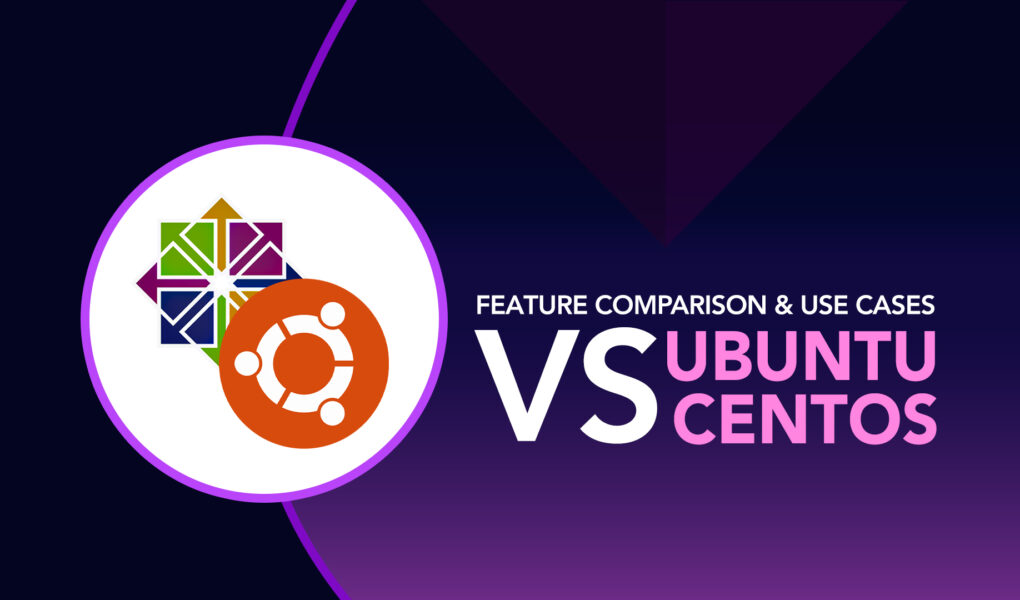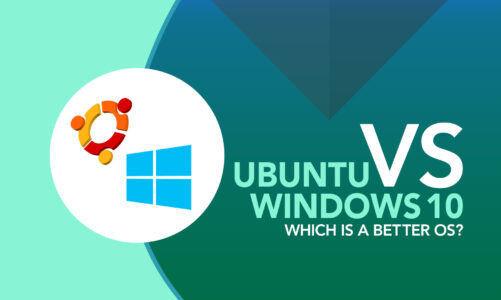Selecting the appropriate operating system for your system’s particular requirements is crucial because it can greatly affect its performance and functionality. Therefore, it is vital to choose wisely. CentOS and Ubuntu are two leading Linux distributions that offer distinct features and therefore are preferred most of the time.
Although there are some similarities between them, they also differ significantly in terms of features, performance, and use cases. Understanding these differences is crucial when choosing anyone to use for your specific needs. The article, therefore, is going to present you with a features comparison of CentOS and Ubuntu, two of the leading operating systems.
Overview of CentOS
CentOS is a free and open-source Linux distribution that provides enterprise-grade features without the associated costs. Red Hat Enterprise Linux (RHEL) is recognized for its stability, reliability, and security, which are attributed to its code. These qualities make it a favored option for servers and essential systems.
Its large and active community supports its development and the YUM package manager allows for easy software installation and updates. While it may not always have the latest software versions, its close link to RHEL enables developers to work in one of the best Linux distributions out there.
Overview of Ubuntu
Ubuntu, a Linux distribution based on Debian architecture, has been a popular choice for personal and professional use since its launch in 2004. Its exceptional user-friendly interface, effortless usability, and superior security features are highly recognized.
The OS is free, open-source, and frequently updated to remove bugs. It offers over 40,000 applications through its software center and package manager, making it a flexible and user-friendly choice for desktop and server environments.
Its popularity is due to its open-source nature, rich set of features, and large active community of users and developers who contribute to its development and support.
CentOS vs. Ubuntu: Feature comparison
When comparing CentOS and Ubuntu, it is important to consider several significant factors. That includes the following.
1: Security
When selecting an OS for your desktop or server, security is a vital aspect to take into account. Both CentOS and Ubuntu take security seriously and come with built-in security features. CentOS uses SELinux, a set of security modules that provide mandatory access controls, while Ubuntu uses AppArmor, a security framework that enforces mandatory access controls.
2: Package Management
Package management is another important consideration when choosing an OS. CentOS uses the Yum (Yellowdog Updater Modified) package manager, which allows for easy installation, removal, and updating of packages. Ubuntu, on the other hand, uses the APT (Advanced Package Tool) package manager, which is known for its simplicity and ease of use.
3: Stability and Reliability
CentOS is known for its stability and reliability, thanks to its focus on security and long-term support. It is often used for servers that require continuous uptime and minimal downtime. Ubuntu, on the other hand, releases new versions every six months, which may cause compatibility issues and require frequent upgrades.
4: User-Friendliness
Ubuntu is known for its user-friendliness, making it an ideal choice for beginners and those who are not familiar with the command line. The desktop environment of the former, known as Unity, aims to be intuitive and uncomplicated for users. Meanwhile, CentOS is tailored towards adept users who are at ease with the command line and favor a simplistic desktop environment.
5: Community Support
CentOS and Ubuntu each possess extensive and dynamic communities of both users and developers, facilitating the process of obtaining assistance and resolving problems. CentOS has a reputation for being more community-driven, while Ubuntu has a reputation for being more commercially driven.
6: Cost
Both CentOS and Ubuntu are free and open-source, but CentOS is based on the open-source code of Red Hat Enterprise Linux (RHEL), which requires a paid subscription for enterprise support. Ubuntu offers enterprise support through Canonical, which can be purchased at a cost.
Conclusion
Knowing the differences, we can say that CentOS is a good choice for critical systems that require high stability and security, especially for older hardware or systems with limited resources. Meanwhile, Ubuntu offers frequent software updates and an easy-to-use interface, making it a popular choice for desktop users and developers. In the end, the choice between CentOS and Ubuntu should be influenced by your distinct requirements and personal inclinations.



